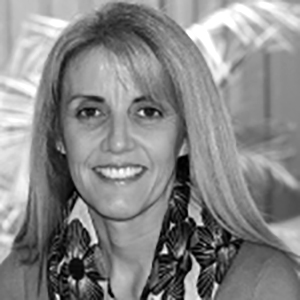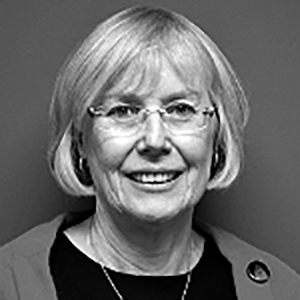Parents have access to more information and technology than ever; so in theory it should be a great time to embark on parenthood.
When you bring a child into the world in 2017, there are countless apps, websites, forums, social media and mainstream media articles professing to help. You can see what other parents are doing, learn about developmental milestones, discover the latest trends and access so-called ‘must-have’ products.
Pressure to be a perfect parent is not a new concept, however technology has magnified the pressure – from seeking health answers via ‘Dr Google’, apps such as ‘sleep training’ or ‘baby cry analysers’, to in-home products including baby monitors equipped with video cameras and heart rate monitors.
We spoke to UniSA researchers across the fields of midwifery, psychology, education and nutrition about the factors at play, how these effect parents and their children, and how to avoid becoming too caught up in it all.
 Midwifery Program Director Dr Lois McKellar believes media and popular literature shoulder a lot of the blame for today’s high expectations.
Midwifery Program Director Dr Lois McKellar believes media and popular literature shoulder a lot of the blame for today’s high expectations.
“The image perpetuated for most parents is of a happy, healthy baby with much of the advertising and pictures portraying perfection, and subconsciously parents set themselves up with very high – and unreal – expectations,” Dr McKellar says.
“I think that even our well-meaning public health campaigns have inadvertently influenced this – ‘breast is best’ is a slogan that has been with us for years and maybe needs a review.
“As a midwife I agree that breast milk is the best source of nutrition for babies up to six months but the language ‘best’ has become to some degree, synonymous with ‘good’ and we have seen this in two recent studies undertaken at UniSA.
“So if the baby is feeding, sleeping and looks great they can tick the box of a good parent. In contrast, women can feel they have failed if they haven’t been able to breastfeed.”
Dr McKellar says there is a lot of information available and some of it is simply incorrect – parents need to be able to know how to discriminate between what’s evidence-based and what’s not.
“This information also may take the place of actually seeking help when it is needed. We know that postnatal depression for women and men is a very real concern facing Australia – one in five women experience postnatal depression and there is an increased incidence in fathers – these parents need to be able to find help when they need it.”
Advice can be conflicting and confusing, creating anxiety, so how can parents avoid getting caught up in the pressure for perfection?
Dr McKellar points to the concept of the ‘good enough’ parent, first put forward by psychoanalyst and paediatrician Donald Winnicott, and later by Bruno Bettelheim, who essentially say that you don’t have to be perfect, just ‘good enough’ at providing the basic elements of love, care and commitment, and meeting the child’s needs.
“They originally hoped to offset the dangers of idealism and also the intrusion of ‘experts’, encouraging parents to instead draw on their own knowledge and instinct,” Dr McKellar says.
“So one way for parents to avoid getting caught up in the pressure is to accept they don’t have to be perfect, just ‘good enough’.”
 Senior Lecturer and Clinical Psychologist Dr Helen Stallman also acknowledges the pressure that bears down on parents from many areas, in particular social media.
Senior Lecturer and Clinical Psychologist Dr Helen Stallman also acknowledges the pressure that bears down on parents from many areas, in particular social media.
Dr Stallman, who specialises in interventions to improve mental health and wellbeing with parenting as one of her key fields, pinpoints two issues challenging parents.
“Firstly, everybody is busy, which means the issues that relate to wellbeing and resilience in our children, particularly around sleep, nutrition and exercise can be difficult for parents to think about and in-turn to influence,” Dr Stallman says. “And children don’t function well without these things.”
Secondly, technology influences a lot of areas, but particularly can affect our sleep, and can mean children miss out on other areas of development, such as getting enough physical activity and spending time in face-to-face social situations.
“When children are using technology, it means they’re not engaging in other activities to get other kinds of stimulation, and as a result they’re not developing the fine and gross motor skills they need,” Dr Stallman says.
“Problems can arise from not having rules around screen time – and this is true both for parents and children. It’s hard for parents to influence this if they themselves are using their phones at the dinner table,” Dr Stallman says.
It’s a familiar scene – in the shopping centre or café, a toddler begins to get agitated, it quickly escalates into a tantrum, passers-by stare in the direction of the noise, and the parent hands their phone to the child and defuses the situation.
But Dr Stallman suggests that when you take actions to get through the moment, with a short-term benefit, for the immediate pay-off, there’s often a long term consequence for both child and parent.
“A child needs to learn to be disappointed, needs to learn they won’t always get what they want and needs to learn how to be bored. They also need to learn that you don’t get what you want by behaving badly, for example having a tantrum,” Dr Stallman says.
“By instilling these lessons, the child will grow up to be resilient, creative and independent, however parents can get lost in the moment.”
Today there is so much information on child development that parents can feel that there is something wrong with their parenting if their child isn’t doing what a friend’s child is.
 UniSA Associate Head of the School of Education, Associate Professor Victoria Whitington, an expert in early childhood education, says developmental milestones are on a spectrum that should be used as a guide, and while it’s important for parents to be aware of these, at the same time they should remember that each child will not hit these marks at exactly the same time.
UniSA Associate Head of the School of Education, Associate Professor Victoria Whitington, an expert in early childhood education, says developmental milestones are on a spectrum that should be used as a guide, and while it’s important for parents to be aware of these, at the same time they should remember that each child will not hit these marks at exactly the same time.
“Some children will crawl or take their first steps earlier than others, but this doesn’t mean that they’re smarter,” Assoc Prof Whitington says.
“Parents can be quite competitive about it but they need to be reassured – to remember that each child has a somewhat different pathway.
“There are sensitive periods in brain development - characterised by rapid growth in neural connections in the brain and stimulated by the child’s interaction with their environment - when what is called ‘brain architecture’ is formed.
“This architecture becomes the foundation for the child’s future development and the senses have a critical role in that development.”
For example if it seems a child has difficulty seeing or hearing it is important that this issue is noticed soon, and that supports are provided such as a hearing aid or glasses.
Detection of these problems past the sensitive period means any intervention will be less effective than if the issue had been picked up earlier.
Assoc Prof Whitington says parents need to observe their children carefully and should not be afraid to ask for help if something seems not quite right.
“There is so much support available, for example Child and Youth Health Services in South Australia. Accessing support where needed is a sign of strength, not weakness,” she says.
For parents feeling the weight of expectation, she says it’s good to listen to other people but be wary of taking what they say as gospel.
“You know your own child and your own family, and you need to trust that you will do the best you can for them; respect your child and trust your own judgement,” she says.
When the pressure feels overwhelming, it’s a good time to remember that the most important thing parents can give children is their time – they don’t need fancy things or lots of toys.
“If you’ve got young children you need to give them time, and it’s got to be quality time, it shouldn’t be with your phone in your hand, it’s about listening to your child and responding to them,” Assoc Prof Whitington says.
“More important than wanting things to play with, the child actually wants someone to play with – whether that be parents or siblings.”
And so, while not defining a perfect parent, Dr Stallman suggests one measure of success is “raising a child who – by the time they’re 18 – is independent, resilient and able to live without you”.
“That’s a success, that’s your job.”
Cover page photo by Making Memories – Photography by Jo.
Story page photo RHS by Brenton Edwards.